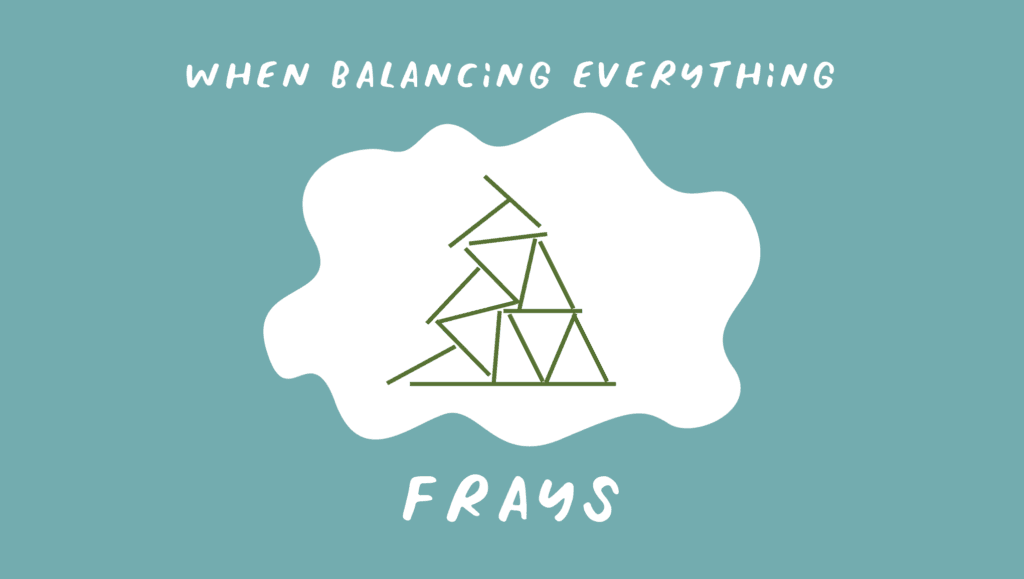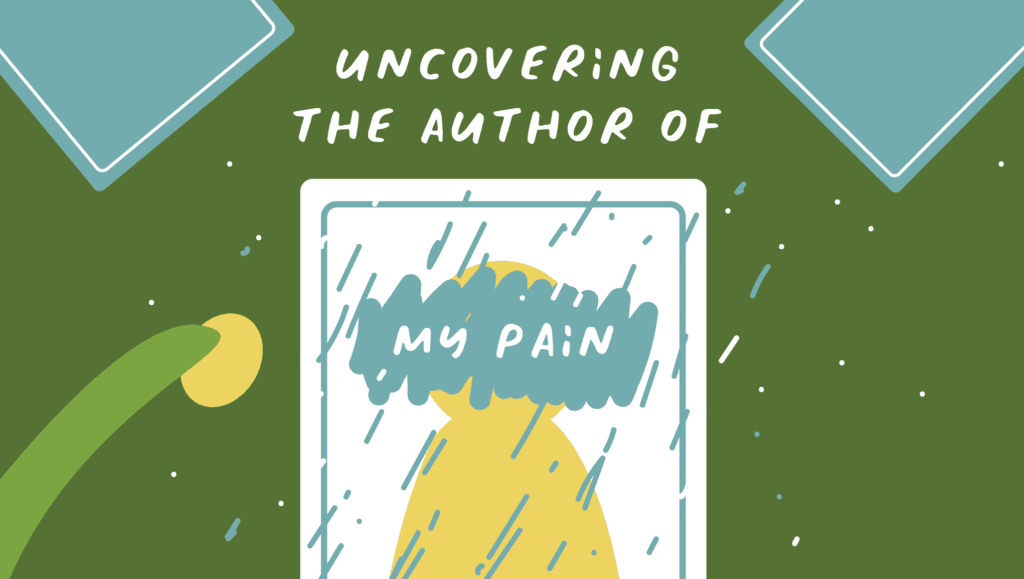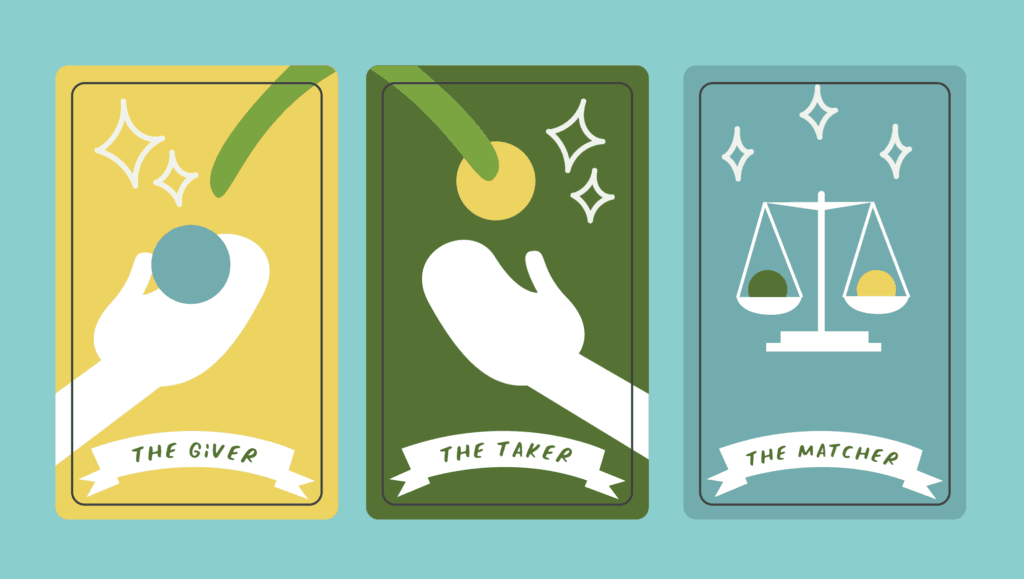TLDR: Be mindful of the underlying metaphors that shape your view of relationships. Relationships are not transactions to be balanced out, but collaborative artworks that are infinitely deep. Give selflessly with no expectation of return. Ironically, this is also how you are rewarded with beautiful and deep connections.
My Journey Into Seeking ‘Balance’
I am not sure which came first – my fascination with order or obsession with building card towers. Either way, this childhood hobby created an attraction to balance. I recall many Chinese New Year holidays where I would eye decks of poker cards and make mental notes to squirrel them away as building blocks for my castles and city blocks.
And though I certainly delighted in the splendour of a make-believe cityscape, my deepest absorption was reserved for the delicate balancing act of 2 plain poker cards, repeated ad infinitum.
Years later, this hobby faded away, leaving a faint but indelible psychological imprint. This shaped the way I arranged my academic life, family time and relationships.
My secondary school life was the first proving ground for this worldview. Friendships were cordial, positive and respectful. I excelled in group discussions, where everyone gets proportionate air time. I was a reliable team member in group projects, where I always put in my fair share of work.
Being a natural listener, I made sure to listen and speak in equal measures, I was an easy conversationalist who struck up many acquaintances. Favours were always reciprocated. All these made me an uncontroversial choice for the class monitor, and eventually the consortium council chairperson.
Everything stood in beautiful order, and I played my discrete role in this tower of cards to the tee.

When Balancing Everything Frays
And yet, these neat, clean lines showed signs of fraying. Somehow, I was deeply unsettled in more personal settings like stay-overs and class barbecues, where our roles and lines blurred into a confusing mix of funny personal stories, boyish mocking and crude jokes. This discomfort didn’t entirely stem from a growing sense of moral superiority.
Even as a council chairman, there was an invisible wall that separated me from the rest of my executive committee. This wall thinned during official meetings, thickened in informal work sessions and get-togethers. Was I drawing my boundary lines too thickly and sharply? Could they be drawn any other way?
Someone once told me that life will keep teaching you the same lesson until you learn it. In my case with relationships, the lesson first came in pricks and then bludgeons.
Who Should Pay for The Food?
We were at a Bishan hawker centre filled with the usual lunch crowd. I parked our bags down on a recently vacated table and signalled my girlfriend to buy our lunch. She hesitated a moment and then merged into the crowd. I sensed something was off but brushed it off.
Later, on our walk home, with eyes downcast, she remarked with a touch of resentment that she had paid for our meal.
“I footed the last few bills, isn’t it only fair that we split?”, I protested almost immediately. In my mind, our 2 poker cards had started tipping over, and her paying for our last meal tipped them back into poise. At that moment though, something else hung in the balance.
“Yes, that makes sense dear, but in our relationship, I had expected you to pay for the meals.”, she said softly.
That comment hit a deep, raw nerve, setting off an emotional quarrel about values and equality, a quarrel that did not resolve when we reached her house.
I turned away, fuming, without so much as a goodbye. She later called, apologized for the comment, and we agreed to an uneasy truce that we would split our couple expenses down the middle.
Like a hastily plastered band-aid, this agreement tided us through easy and safe couple activities over the next few weeks but tore apart in the face of the truly difficult issues.
When Seeking ‘Balance’ Spirals into Pain
We were talking about settling down, and the question of who was paying for the house naturally came into the picture. I wanted us to split the expenses proportional to our income; she wanted me to shoulder the entire cost. This was the meal payment quarrel all over again, on a larger magnitude.
Almost immediately, the same disagreements erupted with greater fury. We argued for weeks, with frustration and mounting anger.
I was adamant about following the principle of fairness, of staying true to the idea of gender equality in treatment and contributions.
I was taken aback by her outdated concept that males should be the leader of the household. She wanted to be assured that I could provide for the family and felt insecure about her economic future because of her hip condition which might render her wheelchair-bound in a few decades. Above all, she sincerely believed that relationships shouldn’t be about transactions. The house of cards was coming apart.
In a moment of darkness, after what felt like our umpteenth call that ended in logical logjams and emotional breakdowns, I seriously wondered if I had made a wrong choice of partner.

Uncovering The Author of My Pain
What hurt me the most was how this recent row contrasted with the deep sense of connection and resonance we shared in every other aspect of our relationship. How could such an otherwise beautiful and stable relationship crumble so quickly just because of a crude matter of dollars and cents?
Our shared vision of a future family, the beautiful child we dreamed about, the cosy home we talked about all felt like naive lies we told ourselves.
Tall, black walls of emotional anguish enveloped me. Our house of cards was being demolished.
She called again, I answered.
“I had been thinking. If we can’t agree on such a fundamental belief, then perhaps, we might not be meant for each other,” I said quietly. She paused. In that heavy pause, the whole world ground to a standstill.
“Why would you…why would you say that?”, she managed a feeble reply, in between muffled sobs.
Right there and then, it struck me how much pain I was causing myself and her. It struck me that the way out of this impasse was not more incisive logic. It struck me that perhaps, just perhaps, I had dead-ended in a maze of my creation.
“Actually, you know what,”, I sighed a breath of relief, “I’ll pay for the house.”

The Givers, The Takers, and The Matchers
When I came across Adam Grant’s work about giving, it gave voice to my growing realization of how my metaphors for relationships had stretched beyond its limits.
According to Grant, there are 3 broad types of people, namely givers, takers and matchers. Givers derive immense joy from giving to others, takers burn bridges by asking for favours and not giving back, and matchers always seek to balance every favour and thing. If it is not already obvious, I was a true blue matcher.
Though matchers may seem the most pragmatic in this dog-eat-dog world, it is the givers who experience the most unbridled joy in their relationships.
Rethinking Balance and Seeing Artwork in Relationships
If anything, my most intimate relationships have taught me that this metaphor of balance between 2 people hinders deeper connection. This idea of balance creates a misconstrued duality between the self and others.
Perhaps a more enriching metaphor is that of a collaborative artwork, where every single brushstroke, regardless of who it came from, adds to the beauty of the infinite, ever-deepening whole. Give selflessly without any expectation of reward, and ironically, you will be rewarded with the most breathtaking and meaningful masterpiece.
If you are wondering, these days I generally pay for meals and she foots the other bills. This is not so much a calculated arrangement as an organic evolution in how we express our contributions to this piece of art we call our relationship.
We also don’t keep score anymore, but it does seem that somehow, we end up shelling out equal amounts at the end of the day. Maybe, just maybe, the 2 cards don’t need the straining attention of this recovering matcher to balance after all.
Wise Steps:
- Review how you view and treat your relationships. Are you a giver, taker or matcher?
- Evaluate if your relationships are where you want them to be. Are they a source of joy and beauty? If not, what are the underlying reasons?
- In your most important relationships, think of 3 ways in which you can give selflessly, solely for the joy of the other party. Act on them as soon as you can.


